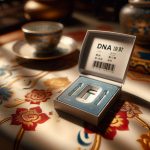Over three decades ago, Larry W. Thomas embarked on a personal quest to uncover the roots of his family tree. This deep dive into genealogical research ignited a passion that eventually turned professional in 2008. A respected member of both the Association of Professional Genealogists and the National Genealogical Society, Larry has since dedicated himself to guiding others through the intricate process of tracing their ancestry.
In a recent interview, he shared valuable insights gleaned from years spent navigating historical records and piecing together familial connections. Larry emphasized the importance of seeking expert help for those looking to delve deeper into their family’s past. His experience underscores not just the joy found in unlocking ancestral stories but also highlights when it’s wise to call in a professional.
According to Larry, there are certain milestones in genealogy research where the expertise of someone well-versed in historical databases and archival science can make all the difference. Whether you’re hitting a dead-end or simply want to ensure your findings are accurate, consulting with someone like him can provide clarity and direction.
Larry’s journey from amateur historian to seasoned genealogist serves as an inspiration for anyone curious about their lineage and demonstrates that with dedication (and sometimes a little professional guidance), unraveling one’s heritage can be deeply rewarding.
What sparked your interest in genealogy and motivated you to make it your profession?
Discovering a book at a family reunion in Patterson, GA, sparked my interest in my ancestors’ history. This book revealed that Gilshot Thomas, an early settler who moved from Maryland to Georgia before the Revolutionary War, played a significant role in our family’s legacy. It was mentioned that Gilshot served as a Lieutenant and later as a Private alongside his son James during the war. However, further investigation corrected this account, showing it was actually Gilshot’s two sons who served together but without any record of them being in combat.
Moreover, after relocating to Cobb County, Georgia, I found out about another branch of my family through my mother’s side – the Akers had historical ties to Georgia too. Interestingly, Cobb County houses an iconic site known as Akers Mill which is linked to this part of my lineage.
My journey didn’t stop with just unraveling my own family’s past; it unexpectedly turned into helping others discover theirs as well. Initially assisting friends out of curiosity and goodwill led me down a new path. Before I knew it, word-of-mouth recommendations had me offering professional genealogy services by 2018 after leaving my last regular job. This transition allowed me to dedicate myself almost entirely to uncovering the fascinating stories hidden within people’s ancestry.
What aspect of your job brings you the most joy?
I take pleasure in delving into history and aiding others in tracing their family roots.
Is there a specific field you specialize in?
My main focus lies in the southeastern part of the US, although my explorations have spanned across the nation. However, I strictly limit my professional inquiries to within the borders of the US and Canada.
Difficulties in this research and solutions

Before the pandemic, navigating the diverse access policies of state archives and similar institutions posed a significant hurdle. Additionally, there’s a common misconception about the time commitment required for thorough research and report composition. Television programs often depict ancestral discoveries for celebrities without revealing the extensive behind-the-scenes work—sometimes involving hundreds of hours over up to two years.
The arrival of COVID-19 has complicated matters further. The pandemic has resulted in limited access to many repositories, making research even more challenging than before.
Advantages of employing a genealogist instead of doing your own research
Hiring a professional genealogist brings objectivity and expertise to your family research, ensuring that personal biases don’t color the facts. For example, it’s easy for someone to hope their forebear was a distinguished Colonel rather than an ordinary Private, potentially twisting information to fit this narrative. However, a professional lacks such emotional investment and is skilled in navigating the vast array of resources available for accurate data gathering.
So, when should a beginner consider enlisting expert help? The moment you find yourself at a standstill or tangled in confusion over individuals with identical or similar names—like trying to differentiate between two William Wales with different professions—it’s time. This scenario isn’t rare; many researchers encounter these forks in the road where discerning one person from another becomes challenging without specialized knowledge and techniques.
In essence, embarking on genealogical research alone can lead down paths lined with inadvertent assumptions and historical inaccuracies. A professional’s guidance not only illuminates the journey but ensures that every turn taken is grounded in truth and clarity.
Recommended Starting Point for Beginners in Genealogy: What’s the Initial Research Step?
Joining a local genealogy group can be a game-changer for anyone looking to dive into their family history. These societies often offer invaluable insights into research methodologies that are universally applicable. However, when it comes to delving into one’s own ancestry, the starting point isn’t always clear-cut. The general advice is to begin with yourself and trace your lineage backward. But really, it boils down to what you’re hoping to uncover. A more tailored approach suggests beginning with the information you’re certain of and attempting to validate it further before proceeding.
For instance, in my journey, I was confident about tracing my roots back to my great-great-grandparents on my father’s side but hit a roadblock beyond that due to the absence of concrete evidence. My aim was to establish a connection to Gilshot Thomas (circa 1730-1792). Through persistent research, I managed not only to link myself directly back to James Thomas (circa 1760, 1835) and his spouse Sarah (whose maiden name remains unconfirmed), but I’m also on the verge of determining if he indeed was Gilshot Thomas Sr.’s offspring.
Navigating genealogical research can sometimes feel like hitting a brick wall—especially when records are scarce or ambiguous. To those struggling with these hurdles, consider aiming for dual verification whenever possible; two pieces of evidence are always better than one unless you stumble upon something exceptionally conclusive like a detailed will.
It pays off big time thinking outside conventional methods too. Remarkable discoveries can come from unexpected places—I’ve unearthed divorce documents amidst land deeds and pieced together missing children from familial disputes over wills taken up in court.
In essence, genealogy is as much about creative problem-solving as it is about rigorous research—keep an open mind and don’t shy away from exploring less-trodden paths in pursuit of your ancestral story.
If you had all the time in the world, what family history or historical project would you want to start?
In the heart of the 19th century, my maternal ancestors, the Akers, settled in Georgia after leaving Virginia. The intrigue around our lineage deepened when two genealogy experts dove into our history but emerged with differing narratives about our roots. They both agreed that back in the 1600s, there were two individuals named William Akers I, making their mark—one in Rappahanock, Virginia, and another in New Jersey. Their descendants thrived and by the early 18th century, members from each line bearing the name William Akers IV found themselves converging in Virginia through marriage.
This blend of families has left us pondering over a captivating question: Does our branch sprout from Virginian soil or does it trace its beginnings to New Jersey?




















